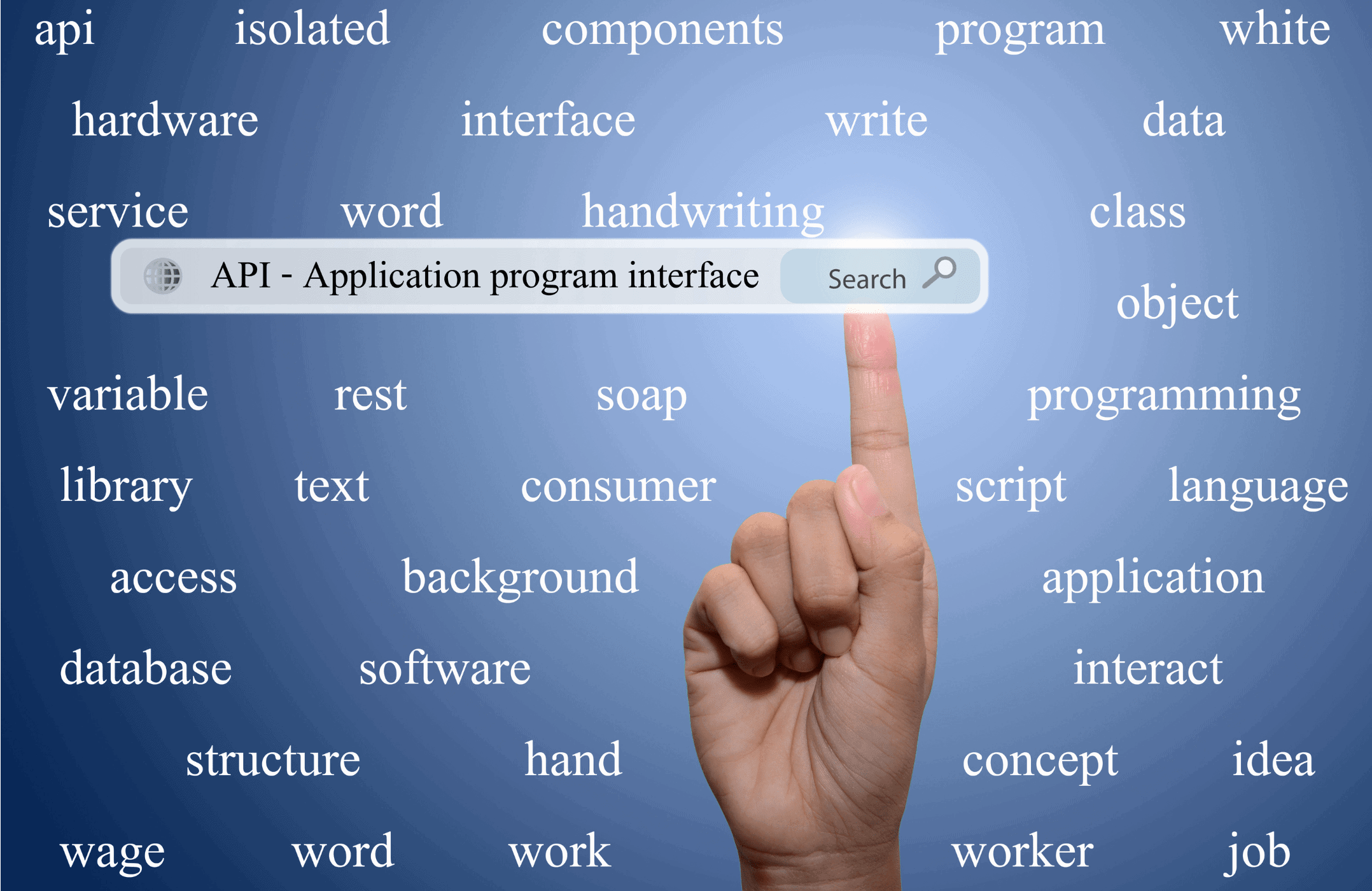Application programming interfaces (APIs) have transformed how ecommerce websites are built, managed, and maintained. Instead of struggling with line after line of complex code, developers can download, integrate, and implement API within their sites, adding functionality to improve the customer experience.
Whatever your customers want to do online, there’s (probably) an API for that. You’ll find ecommerce API that enable you to build stores, access marketplaces, integrate CRMs, process payments, and track packages. The marketplace is full of APIs, which can make selecting the best ones a struggle.
Here is our choice of the 21 best Ecommerce APIs to smash sales for your online store in 2023.
What is an Ecommerce API (and how do they work)?
Before we provide our list of the best ecommerce APIs, here’s a basic explanation of what they are and how they work. (If you’re an experienced ecommerce developer, feel free to skip past this section!)
What is an ecommerce API?
APIs make it easy for your customers to perform critical tasks online. They’re also easier for developers to use when building sites.
Simply put, ecommerce APIs provide connections between two pieces of software.
An API enables two pieces of software to communicate using a standard set of protocols to share information. The API defines how two parts of the system work together. APIs establish relationships between two systems, the client (the side sending a request) and the server (the side processing it).
Let’s say your customer has selected a product and wants to checkout. When they get to the checkout page, they push a PayPal button, the money is transferred, and their item is despatched.
In this example, the website incorporates the PayPal API. Behind the scenes, your website and PayPal communicate together to process payment and produce an order – all in the blink of an eye. The API helps to minimize clicks, ensuring the checkout process is smooth and fast.
APIs work behind the scenes to make things as easy as possible for customers. The result is websites that are faster, smarter, and more effective. The result is more sales.
Why do developers use APIs in ecommerce websites?
APIs make it easy to add critical functionality. Developers can select the correct API and implement it easily into your site. It saves them time, speeding up the process of development. It makes the customer experience seamless. And finally – and most importantly – it makes data sharing safer and more secure.
At a technical level, APIs enable developers to build what’s described as a “headless” ecommerce solution. The website is the front end but other functions (payment processing, order tracking etc.) are performed by others, all linked through APIs.
Ecommerce sites can incorporate several APIs, depending on the functionality required. They work independently and shouldn’t interfere with one another or the website’s performance. However, it’s critical that APIs are updated regularly, and the KPIs are monitored and managed.
Software providers have special developer resources where experienced programmers can access the APIs as well as advice and guidance to integrate them and ensure they work effectively.
This is a basic explanation of what APIs are and how they work. Want to know more? Amazon has created this essential primer, a great place to start.
 21 best Ecommerce APIs to smash sales for your online store
21 best Ecommerce APIs to smash sales for your online store
Search online for ecommerce APIs, and you’ll get thousands of results. We’ve sorted through the searches and identified 21 easy-to-implement ecommerce APIs that can smash sales for your online store in 2023.
💡 Looking for a specific type of Ecommerce APIs?
Go directly to the category of your choice :
The best store builder APIs
Store builders provide a simple way to create an online store. You can use your online store to sell products or services, collect subscriptions, or process donations.
- Magento – Magento has provided the basis of some of the world’s leading ecommerce sites. Now part of the Adobe family, it’s a flexible and scalable platform for B2B and B2C sites.
- Shopify – The Shopify Storefront API is one of the world’s most popular online shop platforms. Customers view products and collections, add products to a cart, and checkout seamlessly.
- WooCommerce – The WooCommerce API is, alongside Shopify, the leading online storefront. Arguably, WooCommerce gives developers greater control to manage complex transactions, including subscriptions.
- BigCommerce API – BigCommerce API offers a broad range of functionality, including the ability to create apps and automate store processes.
CRM platform APIs for Ecommerce
Customer relationship management platforms (CRMs) are critical to engaging effectively with every customer. CRM APIs provide a critical link between your website and management platform, enabling you to influence customers at every stage of the purchase journey.
Hubspot Ecommerce Bridge – Hubspot enables you to access objects, records, and activities on all customer activity online, including their transaction history, deals, contacts, engagements, and marketing activities. Integrators can utilize HubSpot’s Ecommerce Bridge API to seamlessly transfer ecommerce data into HubSpot. This integration enables HubSpot users to access a range of pre-built ecommerce features, such as workflows that greet new customers and minimize cart abandonment, contact and deal property mapping.
- Salesforce API – Salesforce offers developers access to a range of tools and operates what it describes as an “API first” approach to development. The API collection enables you to manage and manipulate your Salesforce data and subscribe to data changes.
Marketing automation/emailing APIs
Marketing automation APIs can be powerful at engaging customers. Examples could include automatically sending an email to those who have abandoned checkout or promoting offers to those who haven’t ordered from you in a while. Almost all large ecommerce retailers use these APIs to improve the customer journey and minimize dropouts.
- Mailchimp – You can integrate Mailchimp into your website, collecting customer sign-up data, automating mailouts, and more. You can also use Mailchimp APIs to engage customers through social media channels, including Twitter and LinkedIn.
- Sendinblue – Sendinblue’s APIs can be used to build what it calls an “all-in-one digital marketing toolbox.” You can create and send transactional emails, batch send customized emails, schedule individual messages, and track all activities.
- Salesforce – The Salesforce marketing automation API provides a solution to organize and manage data-driven campaigns. You can automate the email, and track engagement, including when it was first opened, last opened, and the total number of times it was opened.
- Hubspot – Hubspot’s APIs can connect you with your customers, developing targeted marketing activities to target customers directly. As well as data tracking, it can automatically message those who have abandoned carts or require re-engagement.
- Klaviyo – Klaviyo says its APIs “make it simple to build emails and experiences that are truly personal at scale.”
The best payment processing APIs
Processing payments is a critical function for every business. APIs provide a secure gateway to process credit and debit card transactions, as well as other popular payment methods, including PayPal and Amazon Pay. In addition, many ecommerce sites use several payment processing APIs, offering customers the choice of how to pay for goods and services.
- Stripe – Stripe is one of the world’s most popular payment providers, with its API making integration easy. The API provides a robust way to process credit and debit card payments, with all information recorded in the cloud-based Stripe app.
- Square – The Square API enables payment processing through sites across platforms (including mobile devices). The API allows customized booking solutions, including details, management, and more.
- PayPal – Millions of customers prefer the protection of paying with PayPal. The easy-to-use API enables store owners to process single payments and set up subscriptions.
- Mollie – Mollie offers API integrations for all ecommerce web platforms, including Shopify and WooCommerce. It can also share data with all popular online accountancy programs, making sales monitoring and tax management easier.
- Amazon Pay – Amazon Pay offers customers the protection of the world’s largest ecommerce platform. The Amazing Pay API enables customers to manage one-click payments through your site; all managed through the Amazon brand and platform.
- Authorize.net – Authorize.net is owned by credit card giant Visa and provides the standard range of payment processing, management, and refunds – all backed by the power and protection of a global giant.
The best shipping Ecommerce API
- Sendcloud : If you are looking for a powerful shipping API to automate your shipping process, the Sendcloud API is for you. Besides +50 Plug & Play integrations (Shopify, Magento, Woocommerce…), this API allow you to connect to any system and with +100 local and international carriers (DPD, DHL, FedEx, Chronopost and more.) in seconds.
Most importantly, this single API (RESTful) cover every step of the shipping process:
- Increase your conversions in your checkout by offering shipping options expected by your customers.
- Ship with Sendcloud discounted rates or upload your own carrier contract
- Print your shipping labels in seconds and automate your shipping process with shipping rules to avoid manual mistakes and always ship with the right shipping method.
- Keep your customers in the loops with automated branded tracking notifications and access the complete tracking history of a parcel, from the moment it is announced to the exact time it arrives at your customer’s location.
- Automate your return process by creating standalone returns efficiently from national & international destinations.
For more details on the capabilities of the Sendcloud API, please read our documentation.
If you want to improve your whole shipping experience, you can set up the easy-to-use API in 5 minutes.
The best marketplaces APIs
- Amazon – Amazon is the world’s biggest marketplace, and its API enables you to maximize efficiency and supercharge sales. You can manage listings, update stock, and have real-time access to data on all transactions.
- eBay – The eBay API makes it simple to buy and sell. You can develop listings, share your catalog, and keep up to date with all analytics and sales performance.
- Google Shopping – The Google Shopping API provides a simple way to promote your products through the hugely popular shopping feed. It will automatically update to reflect stock availability and pricing.
- Etsy API – Etsy is a marketplace for craftspeople, artists, and SMEs who want access to a global marketplace. The API makes it simple to create a store, promote your products, and manages sales.
- Mirakl – Mirakl is a preferred choice for drop-shippers who want to build a simple storefront rapidly. The API provides a way to manage product orders from multiple storefronts.
How to use Ecommerce APIs to boost your online sales
APIs are critical to the performance and profit of every ecommerce site. Business owners and developers must select the best-in-class ecommerce APIs to integrate into their sites, as well as exploring understanding how they will work together.
The key to successfully introducing APIs is to focus on your customers and how they can be used to improve the user experience. Implemented correctly, ecommerce APIs can make it simpler, faster, and easier to browse your catalog, select products, purchase them, and track them to your door.


 21 best Ecommerce APIs to smash sales for your online store
21 best Ecommerce APIs to smash sales for your online store














